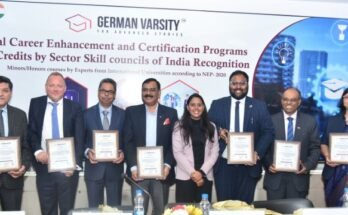The Nigerian tourism industry needs more skilled manpower to drive the sector, Permanent Secretary of the Ministry of Information and Culture, Mrs. Ayo Adesugba has said.
Adesugba who was represented by Mrs. Wale Adesanya on Tuesday at the one-day workshop on the validation of the National Occupational Standards (NOS) for the hospitality and tourism trades, said the forum aims to highlight the core mandate of the National Institute for Hospitality and Tourism (NIHOTOUR). She said: “There has been continued geographical spread of tourism to all parts of the world which as a result made by countries, especially the developing ones stride to develop tourism as a viable engine for socio-economic development.” She added “This growth has also necessitated the urgent need for more skilled manpower to drive the sector,” while emphasizing that funding was key to achieving all of this.
Chairman, Senate Committee on Culture and Tourism, Senator Mathew Urhoghide who declared the event open on behalf of the Minister of Information and Culture, Alhaji Lai Mohammed, said: “it is important and desirable that we do the needful for the development of our country so that we can function on the level of international standards.” Urhoghide said the hospitality and tourism sector is not organized because there are no laws regulating the sector, adding that, there is need to have an acceptable baseline for manpower in the industry.
In order to enhance the skills of the tourism labour market, NIHOTOUR boss, Mrs. Chika Balogun said, Sector Skills Council (SSC) which is charged with the responsibility of validating the occupational standards for effective implementation of the National Vocational Qualification Framework (NVQF) is the missing link in the industry which will help bridge the gap.
She said: “Courses taught may not be what employers demand or require. Through the SSC we’ll know what exactly is needed and tailor courses to meet this demand.” Speaking on the NOS and its evaluation of manpower in the industry, Balogun said: “The NOS specifies the standards of performance that people are expected to achieve in their work and the knowledge and skills they need according to a set of criteria for levels of learning achieved. This is no longer about having talk shops, but the need to be action-driven.”
Country Director, International Labour Organisation (ILO), Dennis Zulu, said although Nigeria has a lot of tourism potentials, they will only remain potentials if the resources are not advertised and spoken about to the world.
Zulu who said he would be introducing the same initiative in Ghana, commended Nigeria for taking the lead on SSC and encouraged that more investment be made in human resources which he described as “the number resource in any sector.” He said: “According to the ILO, SSC which should provide a quality assurance mechanism and the funds for skills acquisition, also provide the bridge between the demand end and the supply end of the industry. The training institute can be supply-driven rather than demand-driven.”
Note: News shared for public awareness with reference to the information provided at online news portals.


